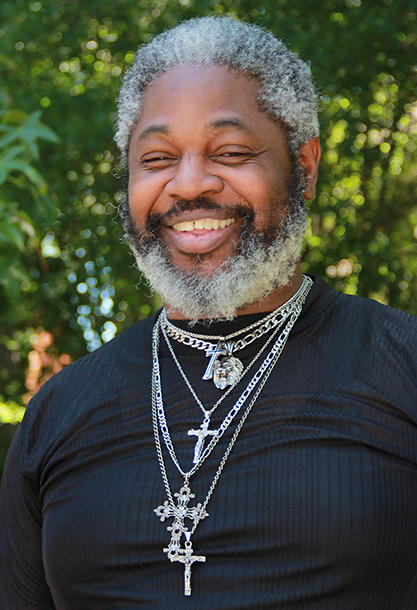 Alonza is a Raleigh, NC native, but he grew up in Washington D.C. As a young adult, he was successful managing a grocery store and convenience store, but his life began to spiral as a result of alcohol and drug addiction. Alonza says his addiction led to his struggle with homelessness. “Drugs do not discriminate,” he says. “They do not care what color your skin is, they don’t care if you’re a high IQ or a low IQ…they will still take you. No matter what condition your brain is in, no matter what condition your heart is in.”
Alonza is a Raleigh, NC native, but he grew up in Washington D.C. As a young adult, he was successful managing a grocery store and convenience store, but his life began to spiral as a result of alcohol and drug addiction. Alonza says his addiction led to his struggle with homelessness. “Drugs do not discriminate,” he says. “They do not care what color your skin is, they don’t care if you’re a high IQ or a low IQ…they will still take you. No matter what condition your brain is in, no matter what condition your heart is in.”
Alonza lost his job and his home, with no one he felt he could call for help. “Being on the street, actually losing everything…is one of the hardest things I think anyone would ever have to go through. Just imagine if you lost everything in your life and there was no one you could call. Nobody you could trust. Nobody you would even want to see you in such a state of being. You wouldn’t even want to call anyone in the first place because you wouldn’t want anyone to know.”
Alonza moved home to Raleigh where he was homeless for several years. He stayed in shelters or slept outside on concrete sidewalks. At one of the shelters, Alonza heard about Cornerstone, a City of Raleigh multiservice center for homeless individuals. Cornerstone connected Alonza with CASA 10 years ago. Alonza remembers his first day in his CASA apartment: “I was just overwhelmed with the prospect of just having something again.” He laughs to remember that the hardest adjustment was keeping up with his keys because he hadn’t had keys for almost four years and was terrified he would lose them.
Once he was settled in to his new place, Alonza rekindled his relationship with his mother. He has maintained his sobriety and volunteers at a local nonprofit thrift store, repairing donations so they can be sold. The thing he still loves the most about his apartment 10 years later is the feeling of independence and stability that comes from having a key to his own home.


